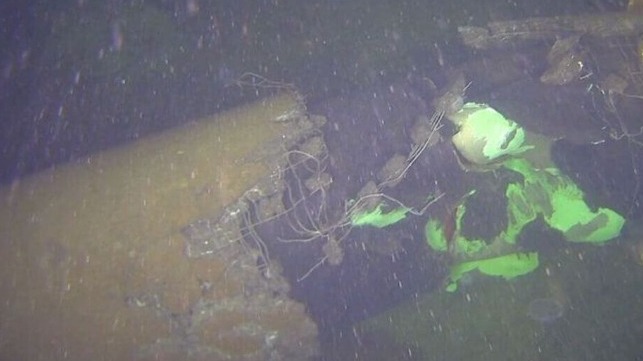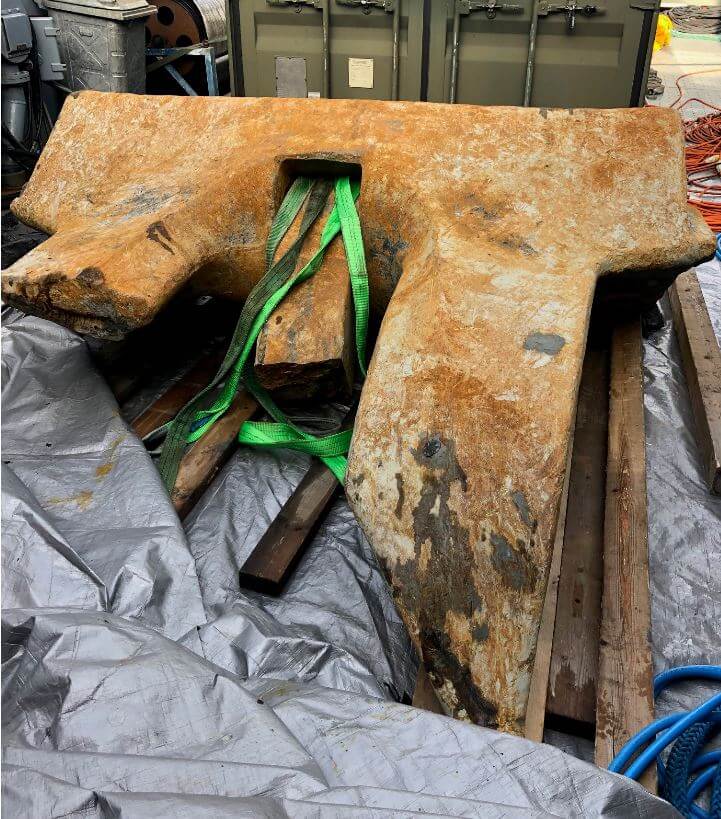China Acknowledges That Boxship Caused Balticconnector Pipeline Breach

After conducting their own investigation, Chinese authorities have acknowledged that an anchor strike from a Chinese-owned container ship caused the breach of the Balticconnector pipeline last year - but they maintain that it was an accident, not a deliberate act of sabotage.
Early on October 8, 2023, the gas pipeline between Finland and Estonia was severed, setting off alarms and triggering a shutdown. A post-accident inspection found a miles-long drag trail leading up to the pipeline, a broken anchor at the damage site, and a smaller drag trail the size of an anchor stock leading away. Finnish authorities homed in on the Chinese-owned boxship NewNew Polar Bear, which crossed the site at about the same moment that a faint seismic event was detected near that position. (The ship was photographed at a later port call in Archangelsk and appeared to be missing one anchor.)
The broken anchor recovered from the damage site (Finnish Border Guard)
The NewNew Polar Bear's crew refused to cooperate with local investigators, prompting some to suspect sabotage.
"I would think that you would notice that you're dragging an anchor behind you for hundreds of kilometers," Finnish Minister of European Affairs Anders Adlercreut told Politico in December. "I think everything indicates that it was intentional. But of course, so far, nobody has admitted to it."
China initially signaled that it would cooperate with the Finnish-Estonian investigation. However, in May, the Estonian prosecutor on the case told reporters that "Chinese authorities have not provided a response on executing [our] legal aid request."

that matters most
Get the latest maritime news delivered to your inbox daily.
According to the South China Morning Post, Chinese authorities have now confirmed privately that NewNew Polar Bear caused the casualty, and have provided information from their internal investigation to authorities in Estonia and Finland. However, China maintains that it was an accident, not an intentional act.
The casualty was one of a series of incidents that prompted European authorities to reconsider their preparedness for attacks on subsea infrastructure. In 2022, multiple blasts severed three out of four pipelines in the Nord Stream 1 and 2 systems; while the identity of the culprit has not been determine conclusively, the attack had the sophistication of a state-sponsored operation.

